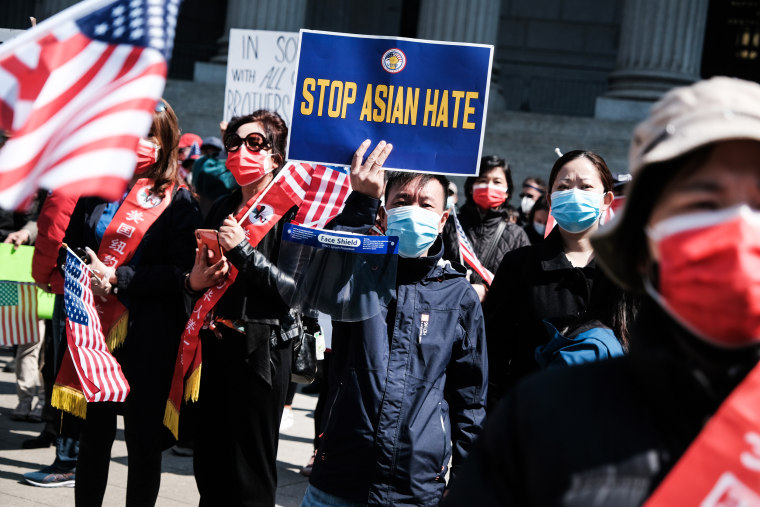New comprehensive data shows that Asian Americans have confronted thousands of incidents of anti-Asian bias over the course of the pandemic.
The reporting forum Stop AAPI Hate released a national report on Wednesday, revealing that they have collected data on almost 11,500 anti-Asian incidents since March 2020. But researchers emphasized that the majority of incidents are nonviolent and cannot be considered crimes.
“We think we need a comprehensive approach to racism. It’s so deeply embedded in our institutions and our history,” Russell Jeung, the organization’s co-founder, told NBC Asian America. “Hate crimes make up a small fraction of what’s happening and to solely address hate crimes won’t get that breadth and depth of racism.”
According to the report, roughly two-thirds of the incidents recorded involved harassment, from verbal or written hate speech to inappropriate gestures. About 17% of the incidents were reported as physical assault, and another 16% involved “avoidance or shunning.” And 60% of all incidents were reported by women.
When asked about solutions, 53% of Asian Americans and 58% of Pacific Islanders said education was the most effective response. Community-based solutions were also highly favored, with 50% of Asian Americans and 58% of Pacific Islanders identifying it as a response. Many also advocated for civil rights legislation and enforcement.
A minority of respondents reported more law enforcement as an effective solution, with 30% of Asian Americans and 21% of Pacific Islanders.
“Most of our incidents are not criminal in nature, and, therefore, require solutions outside of the criminal justice system,” the report reads. “We do not endorse solutions such as increased policing or incarceration that have a disparate impact on communities of color, perpetuating rather than dismantling long-term systemic racism.”
Jeung, who’s also a professor of Asian American studies at San Francisco State University, said that the attacks during the pandemic “revealed historic racism and subconscious fears about Asians as the ‘yellow peril.’” The inflamed hate against the group, he said, was further normalized in the pandemic due to then-President Donald Trump’s mocking rhetoric around the coronavirus.
Due to the deeply rooted nature of these attacks, Jeung said that his organization has been advocating for more systemic measures, like education equity. This would include language access, campus safety, culturally responsive mental health services, as well as curriculum and educational materials that reflect the Asian American experience. Currently, nine states have passed legislation that requires Asian American content to be included in K-12 curriculum.
Jeung also said that his organization is pushing for an expansion of civil rights protections. It has backed two bills in California, introduced in February, that aim to combat harassment and violence against women and other vulnerable populations in public spaces, including on streets and transit platforms.
“We need to establish a new normal of respect and dignity,” Jeung said.
